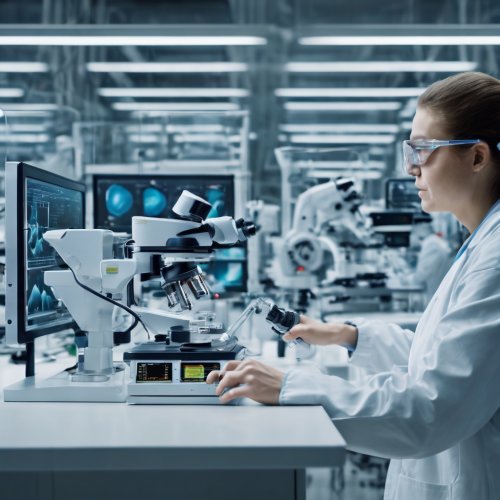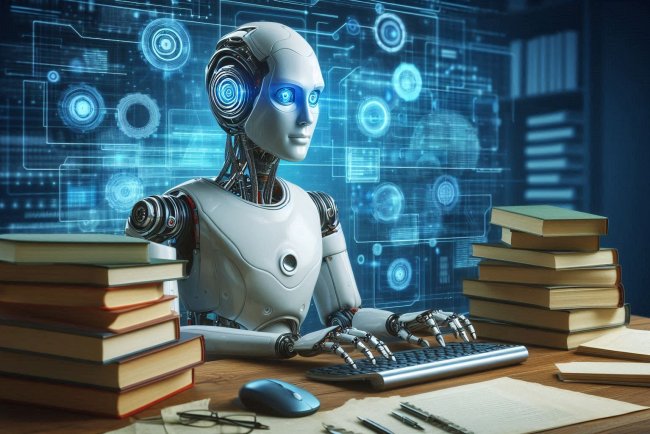Biotechnology Breakthroughs: Merging Tech and Biology
Explore the latest advancements at the intersection of technology and biology with Biotechnology Breakthroughs. Stay informed on cutting-edge research and innovations.

Biotechnology Breakthroughs: Merging Tech and Biology
Biotechnology is a rapidly evolving field that merges technology and biology to create innovative solutions across various industries. From healthcare to agriculture, biotechnology breakthroughs have the potential to revolutionize how we approach complex challenges. In this article, we will explore some of the recent advancements in biotechnology that are shaping the future.
CRISPR-Cas9 Gene Editing
One of the most significant breakthroughs in biotechnology is the development of CRISPR-Cas9 gene editing technology. CRISPR-Cas9 allows scientists to precisely edit the DNA of living organisms, opening up a world of possibilities for genetic research and engineering. This technology has the potential to treat genetic disorders, create disease-resistant crops, and even modify human embryos to eliminate hereditary diseases.
Biopharmaceuticals
Biopharmaceuticals are drugs produced using biotechnology techniques, such as genetic engineering and recombinant DNA technology. These drugs are revolutionizing the healthcare industry by offering targeted and personalized treatments for various diseases. Biopharmaceuticals have shown great promise in treating cancer, autoimmune disorders, and rare genetic conditions, providing new hope for patients with previously untreatable conditions.
Synthetic Biology
Synthetic biology involves the design and construction of biological parts, devices, and systems for various applications. This field combines biology, engineering, and computer science to create novel biological systems with specific functions. Synthetic biology has the potential to revolutionize industries such as energy production, environmental remediation, and drug development by designing custom biological systems tailored to specific needs.
3D Bioprinting
3D bioprinting is a cutting-edge technology that enables the fabrication of living tissues and organs using a layer-by-layer approach. This technology holds great promise for regenerative medicine and organ transplantation by allowing the creation of patient-specific tissues and organs. 3D bioprinting has the potential to address the shortage of donor organs and revolutionize the field of personalized medicine.
Microbiome Engineering
The human microbiome plays a crucial role in maintaining health and preventing disease. Microbiome engineering involves manipulating the microbial communities in the body to promote health and treat various conditions. By studying the interactions between the microbiome and the host, scientists can develop novel therapies for conditions such as inflammatory bowel disease, obesity, and mental health disorders.
Gene Therapy
Gene therapy is a promising approach to treating genetic disorders by replacing or modifying defective genes. This technology holds great potential for treating a wide range of diseases, including inherited genetic disorders, cancer, and viral infections. Gene therapy has shown encouraging results in clinical trials, offering new hope for patients with previously incurable conditions.
Artificial Intelligence in Biotechnology
Artificial intelligence (AI) is revolutionizing biotechnology by enabling the analysis of large datasets and the prediction of biological outcomes. AI algorithms can identify patterns in genetic data, predict the efficacy of drug candidates, and optimize biological processes. By harnessing the power of AI, researchers can accelerate drug discovery, personalize treatments, and unlock new insights into complex biological systems.
Cell Therapy
Cell therapy involves the transplantation of living cells to treat diseases or regenerate damaged tissues. This approach has shown great promise in regenerative medicine by offering potential cures for conditions such as heart disease, diabetes, and neurodegenerative disorders. Cell therapy is being actively researched and developed to provide innovative treatment options for patients with debilitating conditions.
Nanobiotechnology
Nanobiotechnology combines nanotechnology and biotechnology to create novel materials and devices at the nanoscale. These nanoscale structures have unique properties that can be harnessed for various applications, such as drug delivery, diagnostics, and tissue engineering. Nanobiotechnology holds great promise for advancing personalized medicine and improving the effectiveness of treatments for complex diseases.
Conclusion
Biotechnology breakthroughs are reshaping the future of healthcare, agriculture, and many other industries by merging technology and biology to create innovative solutions. From gene editing and biopharmaceuticals to 3D bioprinting and artificial intelligence, these advancements have the potential to address complex challenges and improve human health and well-being.
What's Your Reaction?

















